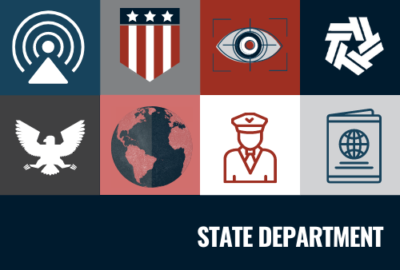Best listening experience is on Chrome, Firefox or Safari. Subscribe to Federal Drive’s daily audio interviews on Apple Podcasts or PodcastOne.
- The Senate is continuing its efforts to reduce duplicative federal programs. Building on several years of Government Accountability Officer reports, the Senate passed the Acting on the Annual Duplication Report Act of 2022 . The bill from Senators Maggie Hassan (D-N.H.) and Mike Braun (R-Ind.), would require agencies to identify duplicative programs and require the Office of Management and Budget to draft legislation to consolidate or terminate those programs. The bipartisan legislation is projected to save about $3 billion over the next 10 years. The House has yet to introduce a companion bill.
- The Defense Department wants help to move its installations toward clean energy. The Defense Logistics Agency issued solicitations for the purchase of carbon pollution-free electricity to develop into a grid that will meet DoD energy requirements in North and South Carolina. The solicitation is part of a plan for achieving a carbon pollution-free electricity sector by 2035. Sam.gov has the solicitations, and award decisions are expected in 2023.
- Air Force employees with disabilities will get more accommodations starting this month. The department started a central fund specifically for installing accommodations for civilian employees with disabilities. Starting in December, approved reasonable accommodation requests will go through a process to be fully reimbursed. The Air Force is developing a portal to centralize and streamline requests for those accommodations. It hopes to have it up-and-running by early next year. A “reasonable accommodation” is a modification to a work environment that lets qualified applicants or employees with disabilities perform their jobs.
- Congress is backing the State Department’s plans to modernize, in the latest defense policy bill. The fiscal 2023 National Defense Authorization Act directs the department to keep the House and Senate up-to-date on its plans to stand up its Bureau of Cyberspace and Digital Policy, as well as provide updates on its hiring efforts. The NDAA gives the department 180 days to issue a report to Congress breaking down the demographic data of its workforce and employees leaving the agency. The report will also include the spending on diversity, equity, inclusion and accessibility programs over the last four years, and disaggregated spending by bureau and activity. (NDAA backs State Dept. efforts to build up workforce, modernize diplomatic mission – Federal News Network)
- The Army will be rolling out a new virtual desktop capability to its entire force in the coming weeks, as it goes live with Azure Virtual Desktop Capability in the next two weeks. It will allow Army users to access their Office365 desktop and applications on their own laptop, potentially negating the need for government-provided computers. “It’s got to be where we enable our warfighters to be able to access data from any device anywhere, and this is where all of our efforts around getting to virtual desktops is so important,” Army Chief Information Officer Raj Iyer said during his keynote address at the Department of Defense Intelligence Information System conference. “If the data is in the cloud, and that is where it resides, and you are able to leverage commercial transport to get to that data anywhere in the globe, then you should be able to bring any device to get access to it.” (Army goes live with virtual desktop capability – Federal News Network)
- Two agencies are getting extra time to transition to the new telecommunications contract. The General Services Administration is bending its deadline for agencies to transition to the Enterprise Infrastructure Solutions contract vehicle a little further for two agencies. GSA said the departments of Justice and Homeland Security now have until May 31, 2026 to complete the transition from Networx. That is two years more than the 80 other agencies that signed memorandums of understanding in September. Those agencies have until May 2024 to complete the transition. GSA said DoJ and DHS need more time because of multiple factors, including global supply chain disruptions and pandemic challenges. (GSA giving two agencies two extra years to transition to new telecommunications contract – Federal News Network)
- Some federal firefighters can now switch shifts with their coworkers. As a new work flexibility, certain eligible federal firefighters are allowed to trade hours across different pay periods. The Office of Personnel Management announced the new policy and will issue the actual regulations later on. OPM noted that a manager has to approve the time trade under the new policy. Although it is limited to just federal firefighters, OPM is touting the policy as a flexibility that is a direct response to employees’ concerns, and something that might make federal employment more desirable.
- The gender wage gap for federal agencies has not changed much in the last two years. Women working at agencies earned about 85 cents for every dollar earned by men. That is according to the latest Government Accountability Office report on gender pay disparities in the U.S. The report also shows that women make up a little less than half of the federal government workforce.
- The IRS is staffing up with taxpayer experience experts ahead of next year’s filing season. The agency names Courtney Kay-Decker as its new deputy chief taxpayer experience officer. She will work with Chief Taxpayer Experience Officer Ken Corbin to identify taxpayer trends and practices, then implement agency-wide improvements in how the IRS interacts with the public. Kay-Decker previously served as the director of Iowa’s Department of Revenue. She also served as the first state co-chair of the Identity Theft and Tax Refund Fraud Information Sharing Analysis Center that partners with the IRS.
Copyright
© 2025 Federal News Network. All rights reserved. This website is not intended for users located within the European Economic Area.



